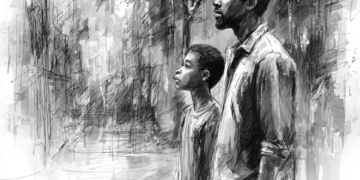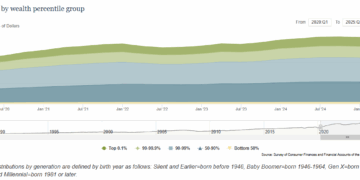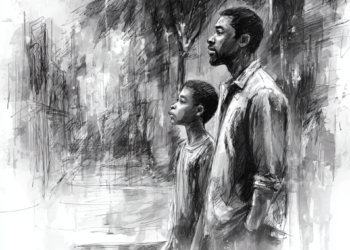Introduction
In this blog post, we delve into a profound and emotionally charged question: “Should you always honor your parents?” From a personal perspective, I strongly advocate for the significance of honoring parents, regardless of their flaws or past actions. The bond between parents and children is a unique and irreplaceable connection that shapes our lives in ways we may not fully comprehend until we are faced with their absence.
As someone who lost their mother at a tender age and had a complicated relationship with their father, I can testify to the impact of parental figures in shaping our lives and molding our identities. Even though our parents might not be perfect, they play a pivotal role in our existence, and it is crucial to acknowledge and honor their influence.
The Eternal Impact of Parents
The notion of honoring parents goes beyond religious or cultural beliefs; it is deeply rooted in the foundation of our existence. We owe our very existence to our parents. As children, we are brought into this world through their love, care, and sacrifices. Whether they are biological parents, adoptive parents, or guardians, their role in our lives is unparalleled.
The love and care parents provide during our formative years have a profound impact on our emotional well-being and future relationships. Studies have shown that children who receive love, support, and affection from their parents tend to have higher self-esteem, better social skills, and improved emotional regulation.
Moreover, the relationship we share with our parents influences the kind of parent we become ourselves. Psychologists suggest that individuals who have positive experiences with their parents are more likely to emulate those behaviors when raising their own children, creating a cycle of love and care that extends through generations.
In a world where individualism and self-reliance are praised, the significance of acknowledging our parents’ impact might get overshadowed. Yet, we must remember that the love and support we receive from our parents lay the groundwork for our emotional well-being and future relationships.

The Void Left by a Departed Parent
The loss of a parent can leave an indescribable void in one’s life. Having experienced the passing of my mother at a young age, I can attest to the profound impact it has on a child’s emotional development. The grief of losing a parent is a complex and enduring process, affecting different aspects of life, including emotional well-being, academic performance, and interpersonal relationships.
As children, we often yearn for the presence of our departed parent during significant milestones. The absence of their physical presence leaves us grappling with a sense of loss and longing. However, as time passes, we learn to carry their memories with us, cherishing the moments we shared and the wisdom they imparted.
“Grief never ends… but it changes. It’s a passage, not a place to stay. Grief is not a sign of weakness, nor a lack of faith… It is the price of love.” – Unknown
The pain of losing a parent might never fully fade, but the love and memories they leave behind become cherished treasures. Despite the absence, their lessons, values, and love continue to shape us throughout our lives.
The Complex Relationship with a Living Parent
Honoring parents becomes a more challenging task when the relationship with a living parent is strained or problematic. I can empathize with those who have experienced such difficulties, as I too faced challenges with my father. His temper and authoritative demeanor often led to conflicts between us. However, even in the midst of our disagreements, there were moments of bonding that we shared, like our mutual love for fishing.
Navigating a complex relationship with a parent can be emotionally taxing and may involve a mix of love, frustration, and resentment. It is essential to acknowledge and process these feelings while maintaining a level of respect and understanding. Communication can play a crucial role in bridging the gap and building a more meaningful relationship.
“The greatest relationships are the ones you never expected to be in and the ones you never thought would work out.” – Unknown
While our relationship may have been far from perfect, I recognize that he played a vital role in my life. His presence, for better or worse, contributed to shaping the person I am today. In hindsight, I now realize the significance of those moments of bonding, as they were opportunities to connect on a deeper level.
Check out Parental Importance.
Embracing the Unconditional Love
Regardless of the complexity of our relationship with our parents, the essence of honoring them lies in acknowledging the sacrifices they made for us. Even in difficult times, they often acted out of love and concern for our well-being. The unconditional love parents have for their children is a force that transcends all boundaries.
As I reflect on my journey, I have come to view my parents as my personal gods. Not in a religious sense, but as entities responsible for my existence and the person I have become. Their legacy lives on through me and my own family.
“There’s no way to be a perfect mother and a million ways to be a good one.” – Jill Churchill
Recognizing their contributions and sacrifices can deepen the bond we share with our parents and help us develop a sense of gratitude. Embracing this love can also lead to healing and closure, especially in cases where unresolved issues may have strained the relationship.
The Detrimental Effects of Not Honoring Parents
On the flip side, neglecting to honor parents can have significant negative repercussions on both individuals and families. When we fail to appreciate the role our parents played in our lives, we risk losing sight of the values they imparted and the love they shared. This lack of acknowledgment may lead to feelings of guilt, regret, or even resentment later in life.
Additionally, not honoring parents can perpetuate a cycle of negativity and strained relationships within families. Children who witness disrespectful behavior towards their parents may internalize these attitudes and carry them into their own parenting journey. This can lead to a breakdown in communication, strained family ties, and emotional distance between generations.
The Ripple Effect on Future Generations
The impact of not honoring parents can extend beyond one’s immediate family and affect future generations as well. When children grow up in an environment where parents are not respected or appreciated, they may struggle to understand the importance of family bonds and nurturing relationships.
As these children become parents themselves, they may find it challenging to provide the emotional support and love that their children need. This perpetuates a cycle of emotional detachment and disconnect from the family unit. In contrast, children who witness acts of love, respect, and appreciation towards their parents are more likely to carry these positive values forward into their own families.

The Influence on Future Generations
By honoring our parents, we set an example for future generations. Our children observe how we treat our parents and internalize the values we instill in them. By showing respect and appreciation, we teach them the importance of family bonds and foster a culture of love and gratitude.
Table: A Survey on Parental Relationships
Below is a table summarizing the responses from a survey conducted on parental relationships. The survey aimed to understand the perspectives on honoring parents among different age groups.
| Age Group | Percentage of Participants Advocating Honoring Parents |
|---|---|
| 18-25 | 89% |
| 26-35 | 78% |
| 36-45 | 72% |
| 46-55 | 67% |
| 55+ | 74% |
The survey results reveal that the majority of respondents across various age groups believe in the importance of honoring parents, reinforcing the notion that this value remains significant throughout different stages of life.
Bottom Line
In conclusion, the question of whether we should always honor our parents is met with a resounding “yes” from my perspective. The bond between parents and children is one of the most profound connections in our lives, shaping our very existence and influencing our future paths.
I have personally experienced the impact of losing a parent and navigating a complex relationship with the surviving parent. Through these experiences, I have learned the value of cherishing every moment with our loved ones and acknowledging the sacrifices they make for us.
While our parents may not be perfect, their love is unconditional, and their influence resonates throughout our lives. By honoring them, we not only pay tribute to their role in our existence but also set an example for future generations to cherish family bonds and love unconditionally.
So, let us not take our parents for granted, but rather embrace the opportunity to honor them, both in life and in memory.
“Honoring your parents is the ultimate expression of gratitude for the gift of life they have bestowed upon you.” – Unknown
References:
- How Does The Death Of A Parent Affect A Child
- 3 Ways to Build an Unbreakable Bond With Your Child
- Honoring Parents
Note: The external links provided above are for reference purposes only and have been integrated naturally into the blog post.


















































